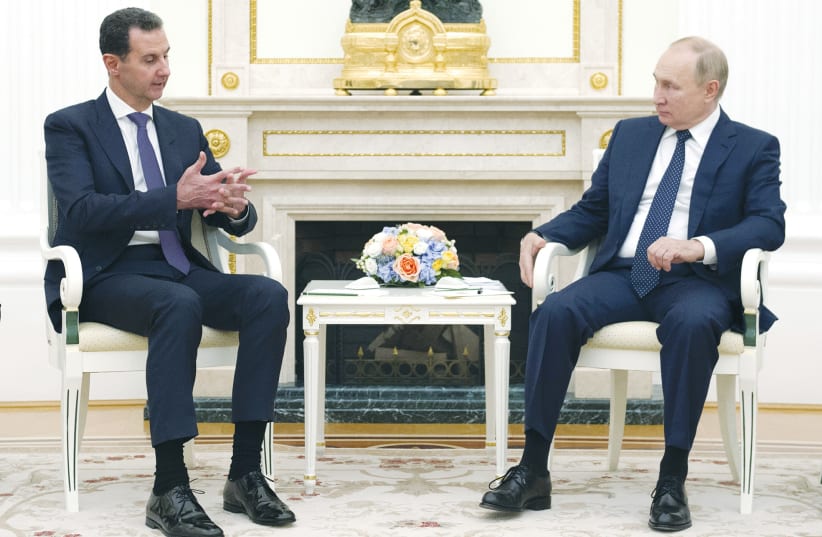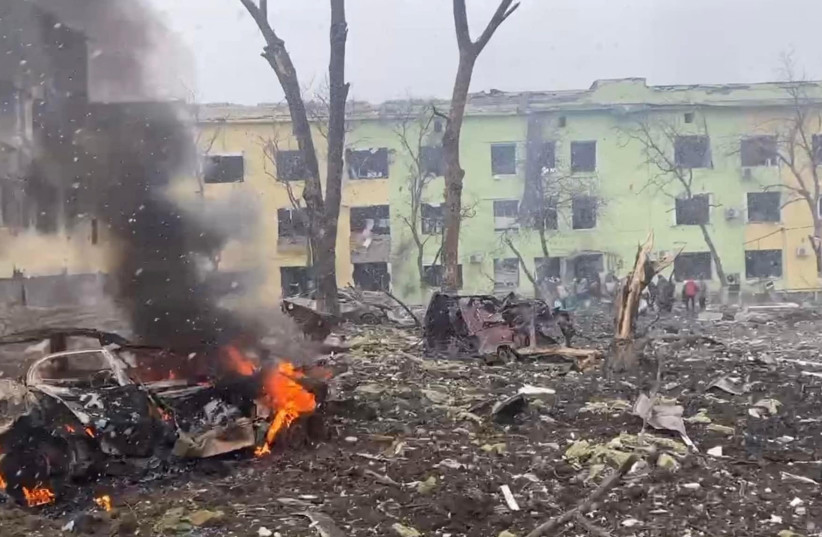Russia looks like using its Syrian playbook for a brutal war in Ukraine.
Moscow began the war with pinpoint strikes on Ukraine and hoped to overwhelm its defenses in a surprise attack. Although Ukraine had ample warning, Russia did achieve the element of surprise and appeared to continue racing toward the capital Kyiv. However, tough Ukrainian resistance slowed down the Russian army, so it then began to resort to attacking civilians.
It now appears that Russia’s systematic targeting of cities, such as Kharkiv and now Mariupol, is part of the game plan that Russia developed in Syria.
Read more about the Russia-Ukraine War:
- Day 14 war updates
- Russia says it will no longer participate in Council of Europe
- UK imposes sanctions against Chelsea owner Roman Abramovich
- Ukraine opens website to submit Russia war crime allegations
- Poll: Most Israelis support imposing quotas on the absorption of refugees from Ukraine
It harasses civilians into fleeing, and then does short term “ceasefires” to channel the civilians into “corridors.” The idea is to squeeze cities and give the aggressor a chance to target civilians.
The attack on hospitals is part of this Syria method. Russia honed these kinds of attacks when backing the Assad regime. Because Moscow had impunity to bomb and attack in Syria, it believes no one will stop it in Ukraine.
Russia worked hard to dominate and infiltrate UN institutions to guard against any critique at the human rights council or other institutions.
This is how Russia and China often take over international organizations and use them to protect their friends. Like other authoritarian regimes, Russia has an outsized role at the UN.
Outside the UN influence, Moscow believes that while Western media will write stories, as long as Russia keeps driving millions of people from their homes it will have “won” in Ukraine.
Even if it agrees to a ceasefire now, Russia has already ruined a swath of Ukraine, causing massive damage. Moscow’s goal is to turn Ukraine into a near abroad, a destroyed and weak border area that can be used as a buffer with the West.
Having destroyed it, Moscow can declare victory because Russia itself hasn’t been harmed, since all the fighting is in Ukraine. Russian propaganda even pushes this narrative on social media, arguing that, by resisting, Ukraine is harming itself. This is blaming the victim, a narrative Russia has been very good at, honing it in other conflicts.
Russia used the Syrian conflict as practice for Ukraine. It honed its propaganda media machine and worked to push its idea abroad, cultivating some on the far Right and far Left in the West.
Russia knows that when it comes to disinformation you don’t have to dominate 90% of the media, you only need a few “alternative” voices who can present weird conspiracies, and then the disinformation becomes laundered as being at least plausible or “critical thought.”
So the Kremlin and its enablers will push theories about the attack on Mariupol to present it as an “inside job” or muddy the waters of factual reporting. This is also how conspiracies work in other contexts, such as about 9/11.
Part of the Russian playbook taken from its role in Syria is to push stories about “false flag” attacks and to try to claim that its enemies could use chemical weapons in such falsely reported scenarios.
This has raised eyebrows and concerns in the West that the Kremlin could possibly use these types of weapons.
It appears the tragedy of Syria has paved the way for Russia’s brutal Ukraine invasion. Whether Russia continues to succeed at this method of war and enjoy impunity is a question for the international community.

